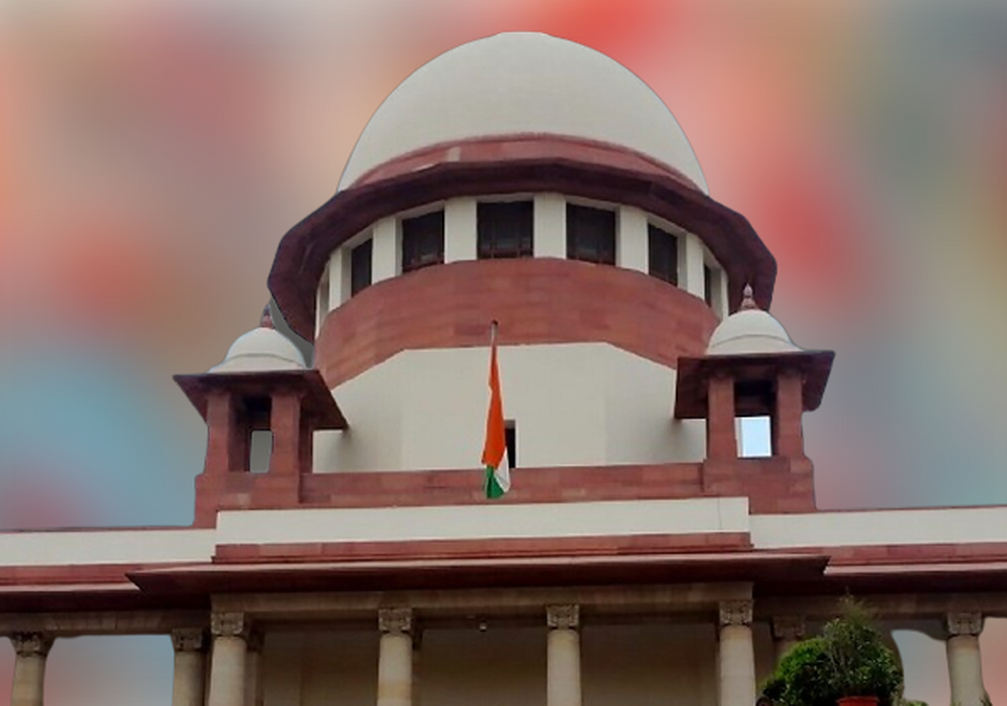Supreme Court asks govt. to clarify on 55 Collegium recommendations for judicial postings

By LE Desk
New Delhi, March 25: The Supreme Court on Thursday asked the government to clarify on the status of 55 recommendations made by the Collegium for judicial appointments to various High Courts six months to nearly a year-and-a-half ago.
Forty-four of the pending recommendations were made to fill vacancies in the Calcutta, Madhya Pradesh, Gauhati, Rajasthan and Punjab High Courts. These recommendations have been pending with the government for over seven months to a year, The Hindu reported.
The remaining 10 names have been pending with the government despite their reiteration by the Collegium. They include five for the Calcutta High Court pending with the government for one year and seven months. The recommendations of four names made by the Collegium to the Delhi High Court have been pending for seven months.
“This is a matter of grave concern… When do you propose to take a decision?” a Special Bench led by Chief Justice of India Sharad A. Bobde asked Attorney General K.K. Venugopal, appearing for the government.
The court asked Venugopal to enquire with the Union Ministry of Law and Justice and make a statement on April 8 about their status. The Bench handed over to Venugopal a chart containing the details of the 55 recommendations.
Justice Sanjay Kishan Kaul said on the 10 recommendations, some of which date back to a year-and-a-half, that “neither have they been appointed nor have you (government) given us a response”.
Justice Kaul, who was accompanying the Chief Justice and Justice Surya Kant, said the “thought process” of both the government and Collegium should be modulated. He said a time frame needed to be fixed for both the Collegium and Ministry to complete the appointment process.
Senior advocate Vikas Singh, who is the president of the Supreme Court Bar Association, said there was a need to institutionalise a process for considering advocates practising in the top courts to judgeships in the High Courts.
“There should be an institutional basis for considering names from the Supreme Court Bar, rather considering them on an ad hoc basis. It should be done as a rule and not as an exception,” Singh said.
Chief Justice Bobde said the court was in complete agreement with Mr. Singh’s sentiments. The CJI said the problem may be that “in some States the Bar Associations call these advocates as outsiders”.
Singh said this was not the case and Supreme Court advocates too should come within the zone of consideration of the Collegium for HC judgeships.
The Bench said it would take up this matter on April 8.
The total sanctioned judicial strength in the 25 High Courts is 1,080. However, the present working strength is 661 with 419 vacancies as on March 1.
The Supreme Court has been repeatedly conveying to the government its growing alarm at the judicial vacancies in High Courts.
It said in October that some of these High Courts were functioning only with half their sanctioned judicial strength. On an average, the courts suffered at least 40% judicial vacancies.
The government has countered that the fault lay with the Collegium and the High Court for delaying the process. Venugopal said the government’s delay was largely because it thoroughly combed the antecedents of the candidate, leaving no room for error. The process, on an average, took at least 127 days. On the other hand, the judiciary took 119 days on an average merely to forward the file to the government.
Venugopal referred to how the Collegium system was put to an end through the National Judicial Appointments Commission to make the appointments process transparent and participatory, only to be thrust out by the Supreme Court.
Sign up for our weekly newsletter to stay up to date on our product, events featured blog, special offer and all of the exciting things that take place here at Legitquest.



Add a Comment